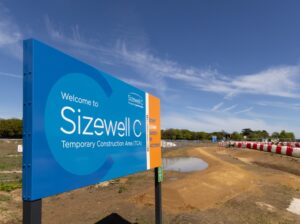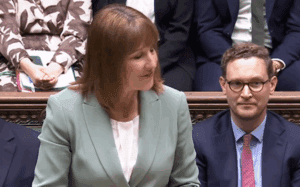
Sizewell C secures £14.2bn state boost – but energy savings won’t come for a decade
Prime Minister Sir Keir Starmer described the development as a crucial move towards energy independence and a way to shield Britain from future global energy shocks, declaring: “We’re not writing a blank cheque, but this investment gives us control over our energy and protection from volatile international markets.”
The announcement comes as part of the government’s wider plan to attract investment, stimulate growth, and position the UK at the forefront of clean energy. The funding is expected to help attract further private investment and reignite progress on a project that has been under discussion for more than a decade.
Yet the Sizewell C project — backed by the state-owned French firm EDF — continues to attract fierce criticism over its cost, timeline, and environmental footprint.
While the government insists that the project will “bring down bills for millions,” Energy Secretary Ed Miliband confirmed that the plant is not expected to begin generating power until the mid-2030s. That means households won’t feel the financial benefit of the scheme for at least another ten years.
The £14.2 billion announced this week — which includes £2.7 billion from the Autumn Budget — will cover just five years of the project’s development. Total costs remain uncertain, with estimates ranging from £20 billion to as high as £40 billion, raising concerns over financial transparency and investor confidence.
Jobs, energy security, and net zero
Sizewell C is expected to create 10,000 jobs during construction and 900 permanent roles once operational. The plant would eventually generate electricity for around six million homes and run for up to 60 years.
Trade unions welcomed the announcement. GMB general secretary Warren Kenny said the project would deliver “thousands of good, skilled, unionised jobs”, while Prospect’s Mike Clancy called it “essential” for hitting net zero targets, offering a clean, stable energy supply to complement intermittent renewables like wind and solar.
Starmer emphasised the national security implications too, suggesting that UK energy sovereignty was key to resisting international threats: “No more boots on our throat from authoritarian regimes like Putin’s,” he said.
Local voices divided
Reactions among local residents remain mixed. Some, like trainee paramedic Chris Matthews from Leiston, praised the investment as a boost to the town’s economy: “We’ve lived with Sizewell A and B. This will bring jobs and prosperity, and we need energy independence.”
Others, however, are devastated by the environmental impact of the project. Jenny Kirtley, chair of Together Against Sizewell C, said: “The whole area is changing before our very eyes. I’ve been in tears many times watching what’s happening.”
Farmer David Grant, whose land will be split by a new access road, labelled the funding “outrageous”, citing EDF’s poor track record with delays and budget overruns at Hinkley Point.
The project has already seen years of shifting figures and staggered announcements. With private investment still not fully secured, critics say the government is committing public funds prematurely. Alison Downes from campaign group Stop Sizewell C said ministers hadn’t “come clean” on the true cost, and that taxpayers remain exposed to potential overruns.
EDF dismissed a £40 billion cost estimate as inaccurate, but its Somerset sister site Hinkley Point C — also developed by EDF — is already more than a decade late and billions over budget.
A final decision on the Sizewell C funding model is expected later this summer.
Even as construction progresses — with site clearance and access infrastructure already under way — questions remain about the long-term affordability, environmental footprint, and feasibility of the project.
The Department for Energy Security said Sizewell C is part of the government’s plan to “deliver the biggest boost to social and affordable housing in a generation alongside supporting first-time buyers” — a somewhat confusing conflation that underscores the pressure on Labour to deliver quick wins amid challenging fiscal constraints.
Despite the complexity, the government remains bullish on the role of nuclear in a greener future. Alongside the Sizewell announcement, Rolls-Royce also secured a £2.5bn contract to deliver three state-of-the-art nuclear reactors — part of a broader national pivot toward new nuclear capacity.
But for millions of British households grappling with high bills today, the promise of cheaper energy remains distant. For now, Sizewell C remains a bet on the future — one that ministers hope will eventually pay off.



